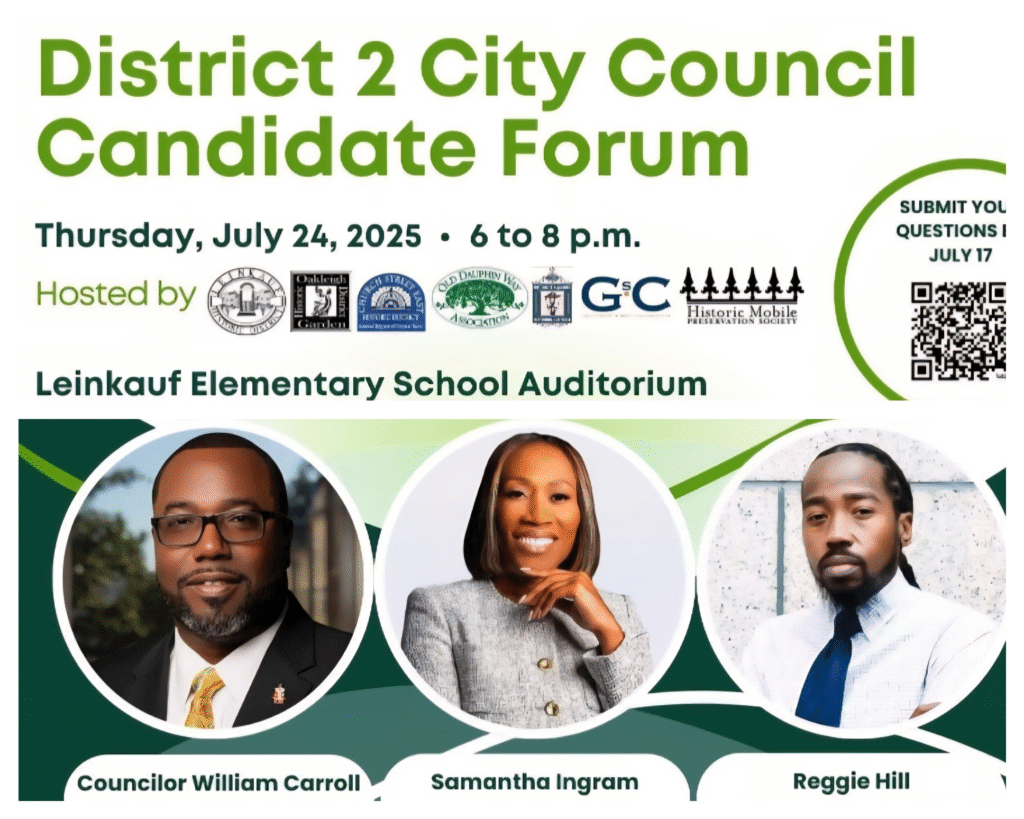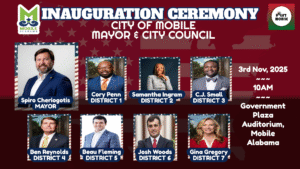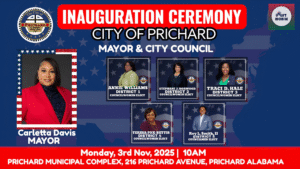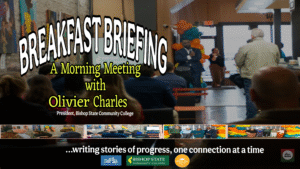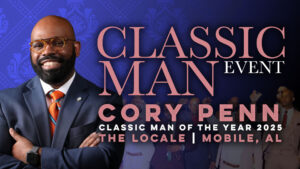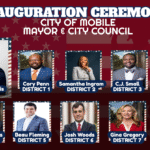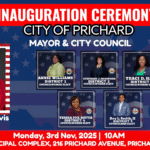Mobile’s District 2 residents gathered at Leinkauf Elementary for the City Council Candidate Forum.
Candidates Reggie Hill, Samantha Ingram, and incumbent William Carroll answered questions about district issues such as infrastructure and drainage, district schools, blight and affordable housing, community engagement, public safety, and the preservation of some of Mobile’s most historical features.
The three opened the forum with introductions.
Ingram reminded attendees of her 30 years of public service during introductions—highlighting her work in the public school system and as Chief of the DoD (Department of Defense Education Activity).
“I’m stepping up to redefine what’s possible for District 2,” she said, calling for leadership that goes “go beyond the norm and above the bar.”
Hill—a grassroots leader and politically active community member—urged for a future where money isn’t indicative of good leadership, stressing authenticity over optics.
“Instead of going off of what you just see, I want you to go off what you know,” he advised attendees, adding, “We know the results from what we’ve had before, and we don’t know what we’re gonna get.”
He concluded, “On August 26, 2025, we need to elect our best future.”
District 2’s current councilor, William Carroll, underscored his tangible accomplishments during this current term of historic preservation and neighborhood revitalization.
“Just like you, I lived in the historic district. Just like you, I value the ideas of historic districts. And just like you, I want to preserve them and continue the progress that we’ve all made.”
Candidates were asked seven questions about their plans for the future of the Historic Districts including Africatown, Campground, The Bottom, Maysville and Texas Hill communities, among others.
Ingram’s approach to leadership centered around strategic, data-informed planning for long-term measurable success, saying, “We must reassess where we’ve invested money… and build for long-term success.”
She urged for collaborative partnerships with schools, state and local government and companies to align district funding and priorities.
On the topic of community engagement, she supports formal neighborhood liaisons, regular public updates, and education to build trust and preserve local heritage.
“Representation doesn’t stop at the ballot. It must be built into city systems.”
Hill called for systemic and equity-first reform, prioritizing long-term, citywide infrastructure and public service changes that begin with addressing the most neglected communities.
He says his campaign centers community voices in decision-making through consistent engagement and listening, rather than assuming leadership knows best, critiquing top-down governance saying, “I don’t want to come [into office] and guess what the people want.”
Hill urged for fiscal responsibility, citing Mobile’s $352 million budget saying, “Only $50 million annually is spent across the city—that’s not enough.”
Councilman Carroll referenced his experience as District 2’s councilor and shared his plan to leverage existing city systems and budgets to implement long-term plans with clear timelines and measurable results.
“We’ve got $28 million across districts,” he said. “I’ve got six years of projects I can show you.”
Carroll echoed the importance of partnerships, saying he plans to collaborate with schools, nonprofits, and vocational programs to create sustainable solutions in housing, preservation, and infrastructure.
He stressed working within formal city structures to advocate, fund, and improve services without overpromising beyond council authority.
As Mobile’s August 26th election day draws closer, residents are nearing the final weeks of decision-making. And while the city looks to elect a new mayor, District 2 continues to search for the next representative of Mobile’s oldest and most-historic neighborhoods.
